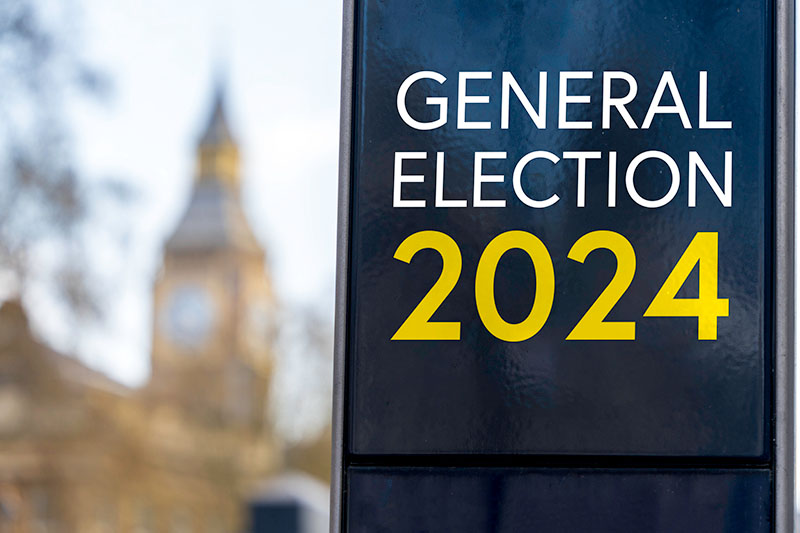
This content is for information and inspiration purposes only. It should not be taken as financial or investment advice. To receive personalised, regulated financial advice please consult us here at Elmfield Financial Planning in Padiham, Burnley, Lancashire.
The election is finally over. Labour won convincingly on 4 July with a large majority, unseating the incumbents after 14 years of power. Pundits are now exploring how the new government might change key policy areas in the coming weeks and months.
In particular, are any taxes set to change? If so, how might a new tax regime bear upon household finances and wealth management? Below, we explore these questions in more detail. We hope these insights are helpful to you.
Please get in touch for more information or to discuss your own financial plan with us.
An open door for specific tax rises
During the election campaign, Labour published its manifesto promising not to raise income tax, VAT or National Insurance (NI). However, analysts noted the absence of specific pledges in other key areas of taxation.
For instance, the manifesto (and statements by Labour Party leaders) did not mention capital gains tax, council tax and dividend tax. It is possible, therefore, that certain taxes could be raised over the coming parliament without breaking specific manifesto promises.
The new government faces a challenging economic inheritance. If growth is weak, the IFS (Institute for Fiscal Studies) claims that Labour will likely turn to tax rises, rather than cut spending, to retain some level of balance in the public finances.
A continuation of “stealth taxes”
The UK already faced its highest tax burden in 70 years before the new government emerged on 4 July 2024. Earlier this year, the Office for Budget Responsibility (OBR) predicted that every pound generated in the economy would provide 37.1p in taxation by 2028-29.
If this transpires, it would be the highest UK taxation level in 80 years. Part of the reason for this increase in taxation is the “freeze” in income tax bands. Many personal tax thresholds have been frozen (in cash terms) since 2021, rather than rising with inflation.
The Sunak government decided to keep this freeze until April 2028, and Labour appears committed to keeping this policy. Whilst this is not a tax “rise” in the strict sense, the frozen thresholds amount to a stealth tax as more workers are dragged into higher income tax bands over the coming years (due to wage increases).
This phenomenon is known as fiscal drag, and is expected to drag 3.7m workers into paying income tax by 2027-2028 (as they exceed the £12,570 tax-free Personal Allowance). 2.7m people could be pushed into the 40% Higher Rate band.
Overall, the freeze could raise an extra £33.5bn for the government by 2029. This is much-needed revenue for the public purse. However, it raises significant questions about household finances.
In particular, could the full new State Pension eventually exceed the Personal Allowance? In 2025-26, the former might amount to £12,480; just below the tax-free threshold. By the following tax year, however, it might stand at £13,540, which would breach the Personal Allowance.
It is unclear how the new government might address this issue given its commitment to the “triple lock” for the State Pension. This raises the State Pension by at least 2.5% per year to help retain its spending power as inflation increases.
How do I approach my taxes now?
There have been some reports of certain individuals panicking about their pension or investments due to fear of imminent tax “raids” on their assets. However, it is important to keep a clear head and discuss any questions or concerns with your financial adviser.
One key question is what Labour might do with the Lifetime Allowance (LTA). Under the previous Chancellor (Jeremy Hunt), the LTA was replaced by three new allowances in April 2024. Labour has not yet committed to a decision on what to do with this.
If the new government keeps the new rules, the most an individual will be able to withdraw from their pensions, tax-free, will be a cash value of £268,275. There is a possibility that the previous LTA charge could be reinstated, which could affect nearly 250,000 pension savers.
Another possibility is that the government targets tax relief on pension contributions. In the past, Rachel Reeves (the new Chancellor) argued for replacing the system in favour of a 33% flat rate of tax relief. However, this was not included in the Party’s manifesto.
In short, there are still many unknowns about the new government’s grand theory of economics and its wider tax plans. We just know that specific areas of taxation – income tax, NI and VAT – have been ruled out for future tax rises. The door is open in other areas, but nobody knows what the new cabinet will decide.
We will all likely know more by October, when the Autumn Statement is traditionally delivered. Here, the government gives an update about the state of the economy and can even announce new tax and spending plans.
Until more information is forthcoming about tax policy, we encourage clients to keep in touch with their financial adviser and to stay true to their long-term financial plan.
Invitation
If you are interested in starting a conversation about your own financial plan or investments, then we’d love to hear from you.
Please contact us to arrange a free, no-commitment consultation with a member of our team here at Elmfield Financial Planning in Padiham, Burnley, Lancashire.
Reach us via:
T: 01282 772938

